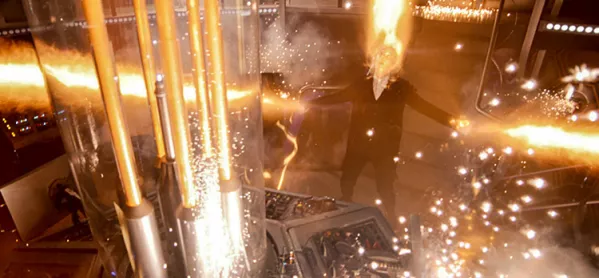It’s Sunday afternoon and this evening I (like the rest of the nation) will be watching the twelfth regeneration of Doctor Who, as the first female actor takes on the role.
It may have escaped most people’s notice but the very first companions back in 1963, Ian and Barbara, were teachers from a London secondary school. They showed such a duty of care towards their student that they followed Susan to her home in a police box. From there, the adventures took off…
Of course, the science fiction and special effects all look pretty dated now, especially against the more complicated stunts and hi-tech green screens of today. The sci-fi of the 1960s has moved on, but has education made such strides?
After reading “AI will give Eton education for all, says Sir Anthony Seldon” in Friday’s The Times, I’m inclined to believe that we have. Imagine all students, no matter which school they attend, having the benefit of being taught by robots. All that the Doctor Who scriptwriters of David Tennant’s era could offer was an episode in which brainy teenagers at a London comprehensive imbibed superior processing skills via the fat on their daily diet of chips.
The trouble with the AI storyline is that there isn’t much room for the mushy/sentimental moments when characters realise how important their emotional journeys are. In the best sci-fi programmes, the main characters usually realise the benefits of human processes and human psychology. K9 is unutterably cute but he couldn’t hack it alone when the BBC wanted to give him his own series.
The robot revolution
Travel and learning, whether through time or the curriculum, require an emotional buy-in.
Teaching has undergone a technological transformation that would be unimaginable to the student of the 1960s; the brash interactive whiteboard transported into the 00s classroom is a far cry from the chalkboards of the 60s; and 3D goggles are readily available for students to enter worlds that were formerly inaccessible, beneath the sea or in the far reaches of the galaxy.
But human interaction and need remain the same in the classroom and in the wider sci-fi universe.
Teachers have undergone a number of transformations - or regenerations as Doctor Who fans like to call them. In the 60s, William Hartnell and Patrick Troughton made eccentricity the order of the day; problems were solved by intuition and superior knowledge. Jon Pertwee brought in a rather more dashing fashion sense for the era (which any photos of teachers from the 70s era could well echo) and I remember only too well a friend in the sixth form knitting a Tom Baker scarf for her boyfriend. Subsequent Doctors wore even whackier clothes to express their individuality, which perhaps led to the premature extinction of Doctor Who by the 90s.
By the time Christopher Eccleston reprised the revamped role in 2005, the Doctor was occupying a more liberal and inclusive universe in keeping with the third-millennium classroom.
The monsters, no matter how techno-savvy, are no match for the ubiquitous sonic screwdriver. Unfortunately, even the teacher-researchers haven’t got such useful instruments to hand to vanquish their demons.
The stark contrast between the widening possibilities that technology can offer and the restrictive robotic practice seems all too common in the modern pedagogical narrative. Eccleston’s Doctor hurled defiance at the Dalek Empire; but all too often the modern teacher is a mere cog in a system which is imprisoning students in a restrictive cramming regimen.
So perhaps after all, it’s not so inconceivable that the next regeneration of The Teacher will be an AI robot. What I’m wondering is, would this open up a path for the next Doctor to be an AI being? And if so, would the robots like to form an orderly queue for auditions?
Yvonne Williams is head of English and drama at a secondary school in the south of England and a member of the National Association for the Teaching of English post-16 committee.




